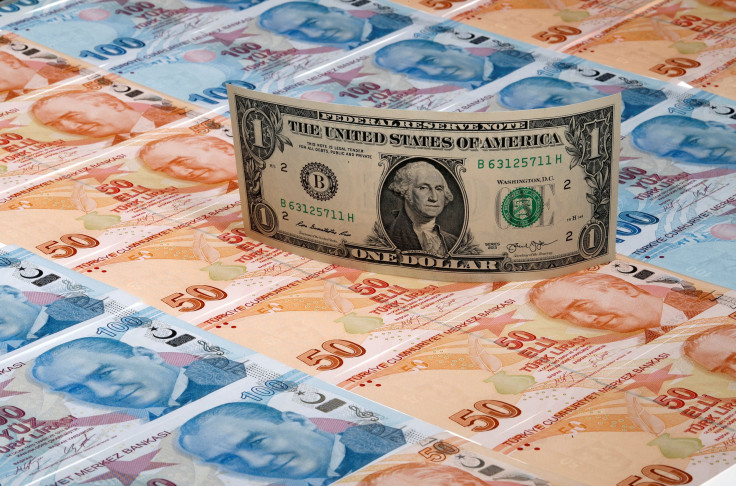Turkey Crisis To Continue Despite Qatar Investment, Says DBS Strategist

Just how much will Qatar's $15 billion lifeline help Turkey, where the lira has slid more than 40 percent against the dollar this year?
Although the lira briefly firmed up on the Qatar investment news, Neel Gopalakrishnan, credit strategist at DBS Bank, thinks a near-term solution looks challenging and Turkey needs much more support given the scale of the crisis.
"For the short term it’s more a sentiment booster," Gopalakrishnan told International Business Times in a telephone interview.
The lira rose to 5.7 to the dollar Thursday, up from the record low of 7.24 it touched Monday.
Gopalakrishnan pointed out that the $15 billion from Qatar represents around 3-4 months of the Turkey's current account deficit and is "small in relation to its external funding needs."
He said it appears some of the $15 billion from Qatar could be longer-term investments, adding "it remains to be seen how quickly these investments would flow into Turkey."
“For the longer term, the fundamentals would have to be addressed,” he said. He compared this with Argentina, which received a $50 billion support package from the IMF in June to prevent a collapse. Turkey would need something similar to what Argentina got, which also provided a lot more liquidity than what Qatar alone has provided.
Gopalakrishnan said the market's main concern was that Turkey would need to refinance short-term external debt in the order of $120 billion in the next 12 months.
"If they lose funding access or they are not able to refinance these bonds and loans, which given their current situation would be challenging, how they would address those refinancings is a big issue," he said.
"From a markets perspective, we believe this issue could continue to affect sentiment until a more comprehensive solution is found, which would require de-escalation of tensions with the US as a starting point."
The lira’s slide came after U.S. President Donald Trump doubled the tariffs on steel and aluminum. There is also the issue of evangelical Christian pastor Andrew Brunson, who is held in Turkey on charges of links to terror organizations. The Trump administration wants Brunson released; a Turkish court rejected his appeal to end a house arrest Wednesday.
But market analysts say the crisis has long been coming and attribute it to Turkey's refusal to raise interest rates to curb inflation. President Tayyip Erdogan has said previously that interest rates are "the mother and father of all evil."
Gopalakrishnan thinks that it is very unlikely that Erdogan would be open to approaching the IMF for a bailout fund as it could come with some restrictions, like seen with Argentina. “Other options Turkey could have are similar to what Qatar has done. Recently there have been some talk about similar support from Russia and China but both countries would probably have their own considerations in extending their support, but nothing is clear right now.”
Gopalakrishnan says the current crisis has been complicated by the political situation, Turkey’s relationship with the West, especially the U.S. To tap the dollar market this time, Turkey would need to restore its relationship with the U.S. "Given the defiant stance that President Erdogan has taken, I see that as a main challenge at this point in time."
The strategist said a lot of Turkey's reported forex reserves of $100 billion is actually reserves of banks parked with the central bank. "So their free reserves are only around $20 billion or so. What the import figures suggest is they have slightly over a month coverage. You could actually argue that if their free reserves come down by another $10 billion, they won’t have enough to cover a month’s imports. It’s actually quite a tight situation."
© Copyright IBTimes 2025. All rights reserved.





















